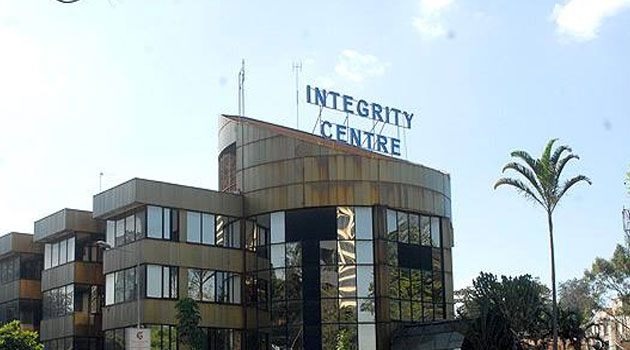
The vocal Opposition lawmaker argues that with EACC fully licensed to dispense prosecutions, it would be extremely hard for offenders who have the “protection of the system” to evade charges levelled against them/FILE
NAIROBI, Kenya, Feb 18 – Offenders accused of corruption risk facing the wrath of the Ethics and Anti-Corruption Commission (EACC) if a Bill designated to confer the anti-graft agency prosecutorial powers is enacted by Parliament.
In his renewed push that is seemingly aimed at trimming the powers of Directorate of Public Prosecutions (DPP) and that of the Director of Criminal Investigations (DCI), Homa Bay MP Peter Kaluma wants the agency given limited powers to prosecute serious economic crimes, fraud, bribery among other weighty offenses.
“Very few cases of corruption and economic crimes proceed to prosecution and end up with convictions and this is largely because the commission merely investigates and reports cases including serious corruption cases,” said Kaluma.
According to Article 13 of the EACC Act 2016, among other powers accorded to the commission, the body is mandated to conduct investigations on its own initiative or on a complaint made by any person, undertake preventive measures against unethical and corrupt practices among other duties.
Kaluma, who also sits at the National Assembly Justice and Legal Affairs Committee states that the office of the DPP has absolute power in handling prosecutions and in his submissions he argues that often the holder of the office might be “compromised by the President.”
“The State through Parliament has deliberately weakened EACC. Being an independent body, it should carry out its mandate autonomously and prosecute individuals without fear or any bias,” he said.
The vocal Opposition lawmaker argues that with EACC fully licensed to dispense prosecutions, it would be extremely hard for offenders who have the “protection of the system” to evade charges levelled against them.
“I want it not to be known who is coming for the persons accused of corruption. When they think the President is telling the DCI not to press charges, the commission then swings into action with the same case to the DPP when they are directed to go slow on a case,” he said.
It is the second attempt by Kaluma to introduce specific amendments to the EACC Act after the Bill lapsed at the end of the second session of Parliament which was on December 18 last year when the legislators went for their long Christmas break, with the Opposition MP now proposing that members of the commission should be full time members.
Currently according to the Act, the Chairperson and members of the Commission serve on a part-time basis for a single term of six years and are not eligible for re-appointment.
Constitutional Lawyer Kamotho Waiganjo however believes that Kaluma’s proposal to empower EACC would generate more confusion in the fight against graft hence suggesting that the body should instead be dismantled and “be made a department within the police force”.
“Part of our problem as a country is that we have too many institutions. In fact, considering now we have effective and independent police force we should be asking ourselves whether there is need to have EACC as an institution,” he told Capital FM News on Monday during an interview.
Waiganjo said the blame game normally witnessed between the EACC, DPP and DCI that over the years has played out in the public domain is not something unique while noting that it is bound to happen every now and then because of lack of coordination between the three bodies.
“The missing link in achieving successful prosecution is always lack of effective investigations which are normally done by EACC and certifying g them as prosecutors would only lead to more turf wars between the three bodies,” he said.
Just last month, former military intelligence officer Twalib Mbarak was sworn into office as the Chief Executive Officer of the graft agency and vowed to make corruption a high-risk venture by ensuring those who irregularly acquire public funds are prosecuted and ill-acquired wealth seized.
President Uhuru Kenyatta who has been very categorical and steadfast on his administration’s position on graft has on numerous occasions accused EACC of laxity and consequently entrusting DPP Noordin Haji and DCI George Kinoti in prosecuting looters who continue to rob the country millions of shillings.
But even as the Head of State continues to make firm pronouncements on his administration’s zero tolerance to corruption, Mbarak is still overshadowed by the under achievements of his predecessor Halakhe Wako who was accused of not doing so much to curb the vice that has proved to be a great deterrent to the country’s development.
Meanwhile, Kaluma maintains that he will rally his colleagues to support the amendments when they get to be tabled on the Floor of the House for debate.









































